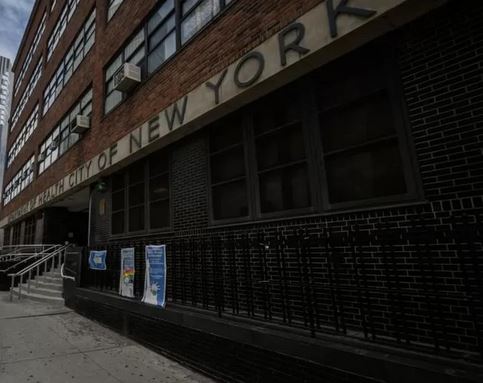
State of emergency declared in New York over polio
Health officials say wastewater samples in New York City and four adjacent counties have tested positive for a poliovirus that can cause paralysis.
Although only one case has so far been confirmed, it was the first in the country in nearly a decade.
Polio was largely eradicated from the US by vaccinations that began in 1955.
By 1979, the US was declared polio-free.
But according to New York officials, vaccination rates are too low in parts of the state. Friday’s emergency declaration is aimed at boosting flagging immunisation rates.
There is no cure for polio, but it can be prevented by the vaccine. Mostly affecting children, the virus typically causes muscle weakness and paralysis, and in the most serious cases permanent disability and death.
New York’s state health department said it aims to boost vaccination rates from the current state-wide average of about 79% to above 90%.
“On polio, we simply cannot roll the dice,” Health Commissioner Dr Mary Bassett said in a statement. “If you or your child are unvaccinated or not up to date with vaccinations, the risk of paralytic disease is real.”
She added that “for every one case of paralytic polio observed, there may be hundreds of other people infected”.
An inactivated polio vaccine is used in both the US and the UK as part of the routine childhood programme. In the US, about 93% of toddlers have received at least three doses of the polio jab, according to vaccination data from the CDC.
Officials began monitoring wastewater in the state for poliovirus after an unvaccinated man in Rockland County, just north of New York City, contracted the virus in July – the first recorded case since 2013 – and suffered paralysis.
The case was later genetically linked to paralytic polio found in a wastewater sample collected from nearby Nassau County in August.
Wastewater samples in Orange County, Sullivan County and the five boroughs of New York City have also tested positive for paralytic polio.
The emergency order issued on Friday by Governor Kathy Hochul is the state’s third this year, in addition to similar orders issued in response to the coronavirus pandemic and monkeypox.





















